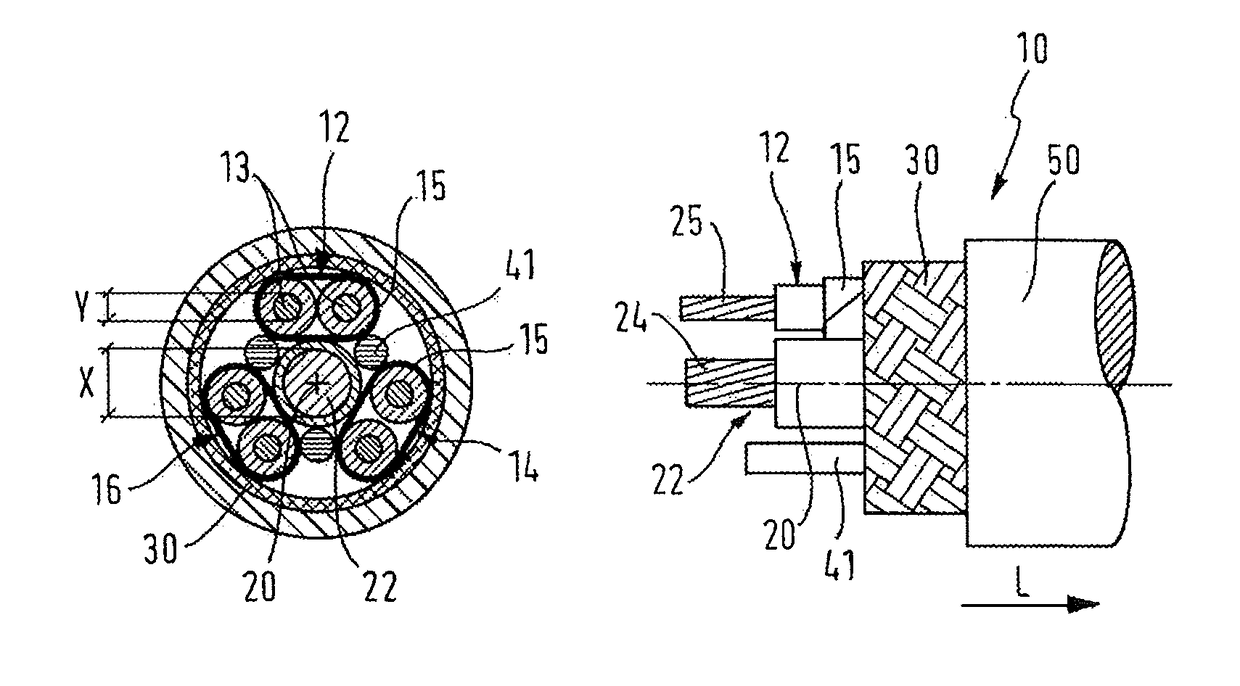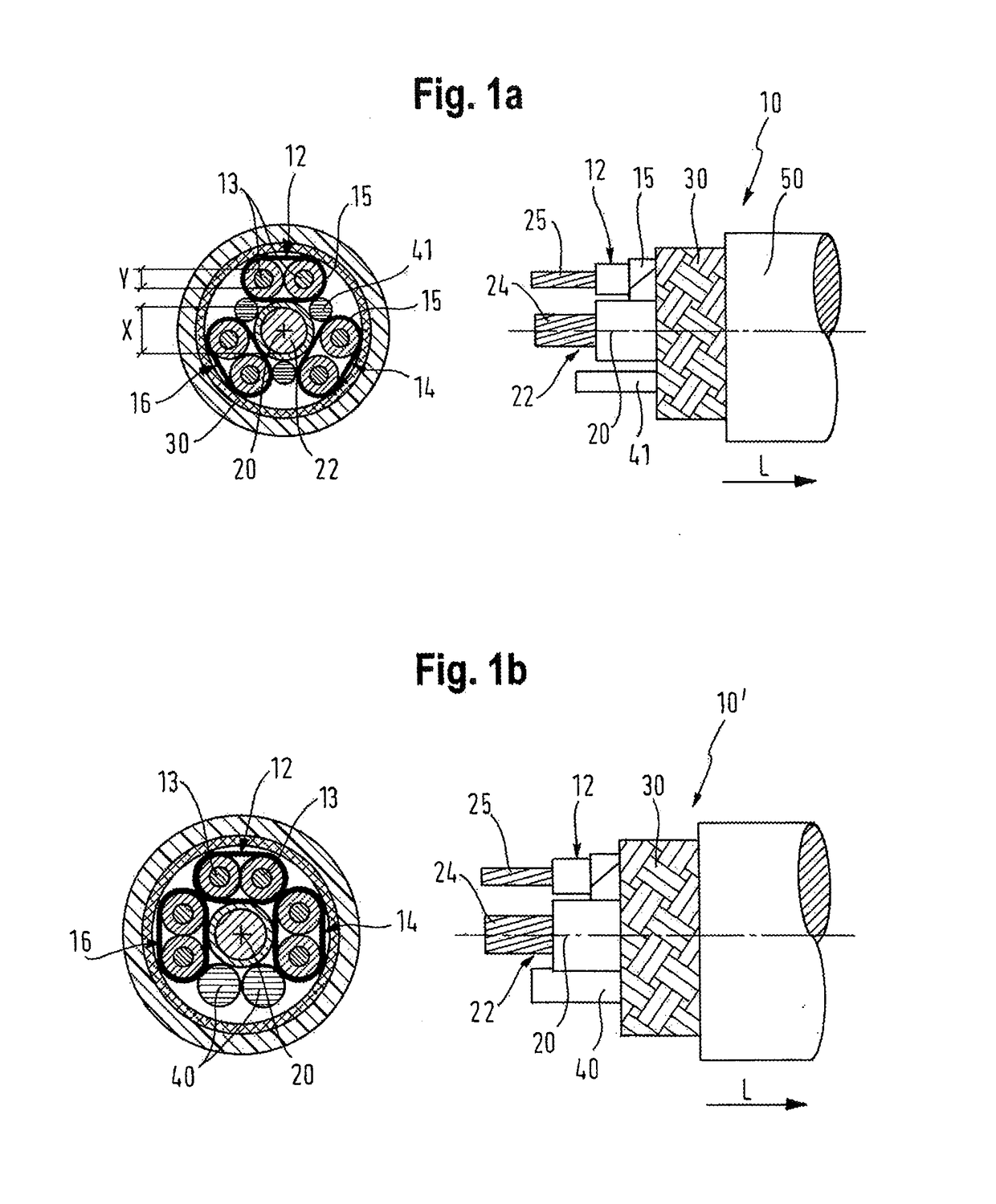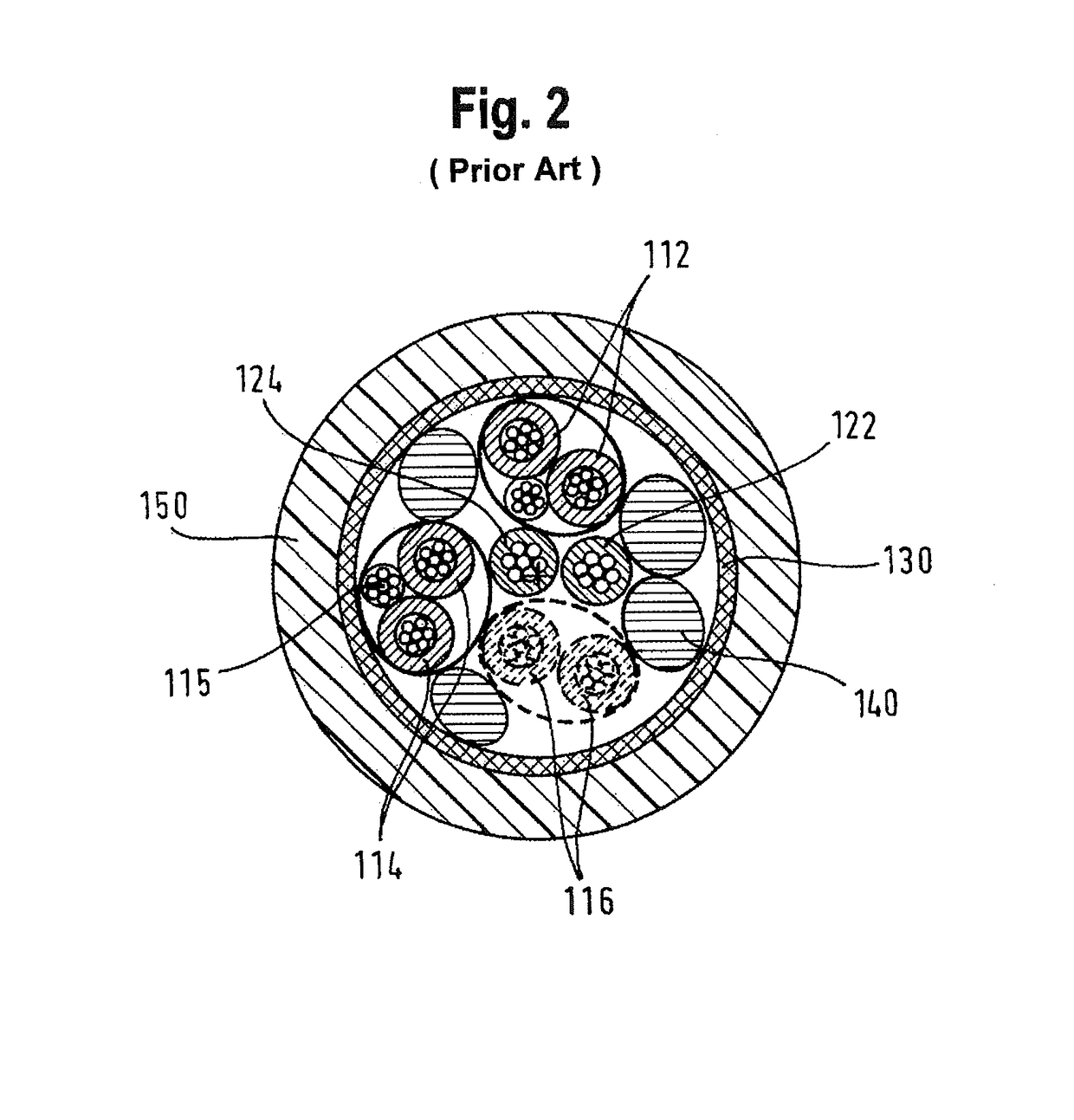Cable with stranded wire pairs
- Summary
- Abstract
- Description
- Claims
- Application Information
AI Technical Summary
Benefits of technology
Problems solved by technology
Method used
Image
Examples
first embodiment
[0055]In FIG. 1a, a cross-sectional view of the present invention is illustrated on the left and a longitudinal view of this embodiment is illustrated, in a partially cut-away side view, on the right. It shows a USB 3.x cable 10 with a total of three wire pairs 12, 14, 16, which are each configured for transmission of a differential data signal. Each wire pair has two adjacent wires 13 running next to one another and is surrounded by a separate shield 15, for example a foil shield.
[0056]The individual wires 13 consist of tinned copper wires, and have a conductor cross section of between 0.05 and 0.2 mm2 and a PP insulation.
[0057]The wire pairs extend in the longitudinal direction L of the cable 10 in a helical arrangement around a common stranding center 20, wherein the stranding center is formed by an additional wire 22 with large conductor diameter X running in the center of the cable. In other words, the wires of the individual wire pairs are not twisted together; rather, the wir...
third embodiment
[0067]FIG. 3 illustrates a USB 3.x cable 10″ according to the invention in cross section. This cable 10″ has two wire pairs 112, 114 (the two Super Speed pairs of the USB cable) which are in each case surrounded by a separate foil shield 15 which is in electrical contact with the common shield 30. These two wire pairs 112, 114 are arranged on opposite sides of the central current-carrying wire 22 and extend in a helical arrangement around the common stranding center 20, which is formed by the wire 22. The two wires of a third wire pair 116 (of the High Speed pair D+, D−) are arranged at a distance from one another within the cable, on opposite sides of the central current-carrying wire 22, in each case offset by around 90° relative to the two wire pairs 112, 114. The wires of the third wire pair 116 are also stranded around the stranding center 20 so that, apart from a rotation around the stranding center 20, the cable has the same arrangement of wires in any cross-sectional plane. ...
PUM
 Login to View More
Login to View More Abstract
Description
Claims
Application Information
 Login to View More
Login to View More - R&D
- Intellectual Property
- Life Sciences
- Materials
- Tech Scout
- Unparalleled Data Quality
- Higher Quality Content
- 60% Fewer Hallucinations
Browse by: Latest US Patents, China's latest patents, Technical Efficacy Thesaurus, Application Domain, Technology Topic, Popular Technical Reports.
© 2025 PatSnap. All rights reserved.Legal|Privacy policy|Modern Slavery Act Transparency Statement|Sitemap|About US| Contact US: help@patsnap.com



